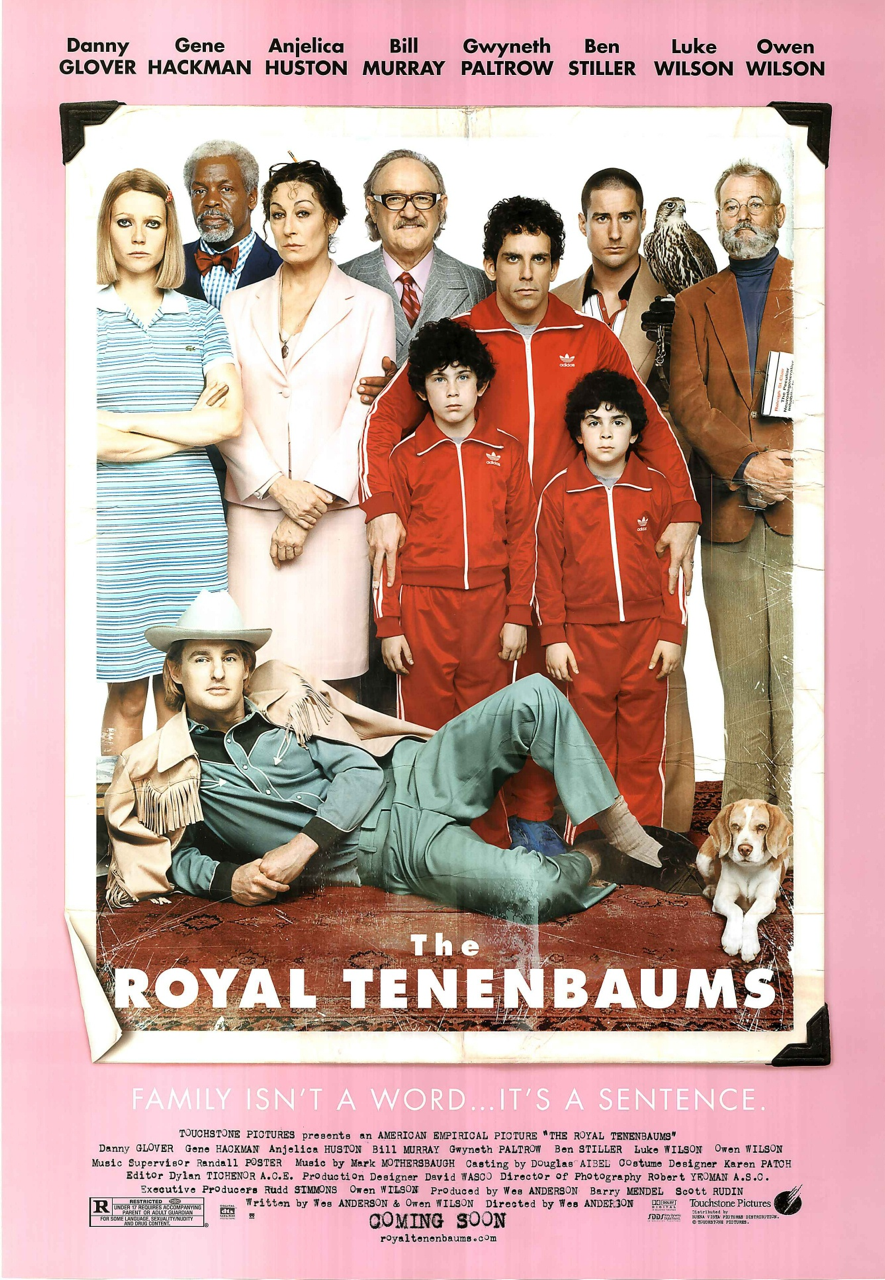The Royal Tenenbaums: A Deep Dive Into Wes Anderson's Cinematic Masterpiece
The Royal Tenenbaums is not just a film; it's a cultural phenomenon that has resonated with audiences since its release in 2001. Directed by the visionary Wes Anderson, this film intricately weaves themes of family dysfunction, genius, and redemption into a visually stunning narrative. The film's unique storytelling, combined with its colorful characters and rich symbolism, has made it a staple of modern cinema and a favorite among critics and fans alike.
In this article, we will explore the various aspects of The Royal Tenenbaums, including its plot, characters, and the underlying themes that make it so compelling. We will also look at the film's impact on popular culture and its lasting legacy in the world of cinema. Whether you are a longtime fan or a newcomer to Anderson's work, this analysis will provide you with a comprehensive understanding of the film's significance and artistry.
So, grab your popcorn and settle in as we embark on this cinematic journey through The Royal Tenenbaums, uncovering the layers of storytelling that make it a true masterpiece.
Table of Contents
Plot Summary
The Royal Tenenbaums follows the story of the Tenenbaum family, led by the estranged patriarch, Royal Tenenbaum, played by Gene Hackman. The film begins with a glimpse into the extraordinary lives of the Tenenbaum children: Chas, Richie, and Margot, all of whom exhibited remarkable talents at a young age.
As the narrative unfolds, we learn that Royal has been absent from his children's lives for much of their upbringing, leading to a fractured family dynamic. After Royal learns that he is terminally ill, he attempts to reconnect with his children, hoping to mend their broken relationships before it’s too late.
Each character grapples with their own issues and past failures, and the film artfully portrays their struggles with love, loss, and acceptance. The climax of the film reveals not only the complexities of each character's journey but also the profound bonds that tie them together.
Character Analysis
Wes Anderson's films are known for their quirky characters, and The Royal Tenenbaums is no exception. Each character is meticulously crafted, showcasing their individual quirks and traumas.
Royal Tenenbaum
Royal Tenenbaum is the quintessential flawed father figure. His selfishness and neglect have lasting effects on his children, yet his charm and humor make him a complex character. Hackman's portrayal adds depth to Royal, making him both despicable and endearing.
Margot Tenenbaum
Margot, played by Gwyneth Paltrow, is a troubled playwright who struggles with her identity and her relationship with her family. Her character embodies themes of isolation and the search for acceptance, making her one of the film's most relatable figures.
Key Themes
The Royal Tenenbaums explores several themes that resonate deeply with audiences:
- Family Dysfunction: The film poignantly depicts the complexities of familial relationships and the impact of parental neglect.
- Identity and Genius: Each character grapples with their sense of self and the burden of expectations, highlighting the struggles of prodigies.
- Redemption: The quest for forgiveness and reconciliation is central to the narrative, showcasing the possibility of healing.
Visual Style
One of the most striking aspects of The Royal Tenenbaums is its visual style. Anderson's signature aesthetic, characterized by symmetrical compositions, vibrant color palettes, and meticulous set designs, creates a whimsical yet poignant atmosphere.
The film's use of slow-motion sequences and unique camera angles further enhances its storytelling, immersing the viewer in the Tenenbaum world. The iconic costumes, particularly Margot's fur coat and Richie’s tennis attire, also contribute to the film's distinctive look.
Cultural Impact
The Royal Tenenbaums has left an indelible mark on popular culture. Its unique style and memorable quotes have inspired countless references in other media, including television shows, music, and fashion.
Moreover, the film has sparked discussions about mental health, family dynamics, and the nature of genius, contributing to its enduring relevance. The Tenenbaum family has become a beloved symbol of artistic individuality and the complexities of familial love.
Legacy
Over the years, The Royal Tenenbaums has solidified its status as a classic in American cinema. Its influence can be seen in the works of contemporary filmmakers who admire Anderson's storytelling techniques and visual style.
The film continues to resonate with new generations, as evidenced by its frequent screenings at film festivals and its availability on various streaming platforms. The Royal Tenenbaums remains a testament to the power of storytelling and the enduring appeal of family narratives.
Conclusion
In summary, The Royal Tenenbaums is a masterful exploration of family, identity, and redemption. Wes Anderson's unique vision brings the Tenenbaum family to life, inviting viewers to reflect on their own experiences and relationships. As you revisit this cinematic gem, consider its intricate layers and the powerful emotions it evokes.
We encourage you to share your thoughts on The Royal Tenenbaums in the comments below and explore more articles on our site for further insights into the world of cinema.
Thank you for joining us on this journey through Wes Anderson's The Royal Tenenbaums. We hope to see you again soon!
Dexter Season 5 Cast: A Deep Dive Into The Characters
Exploring The Life And Career Of Jax Joseph Nilon
Who Was Jenna Jameson Married To? A Comprehensive Look At Her Relationships


